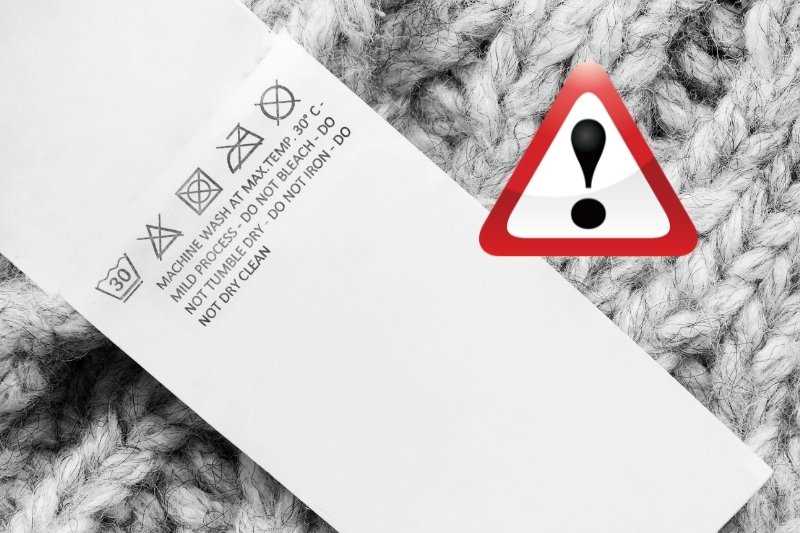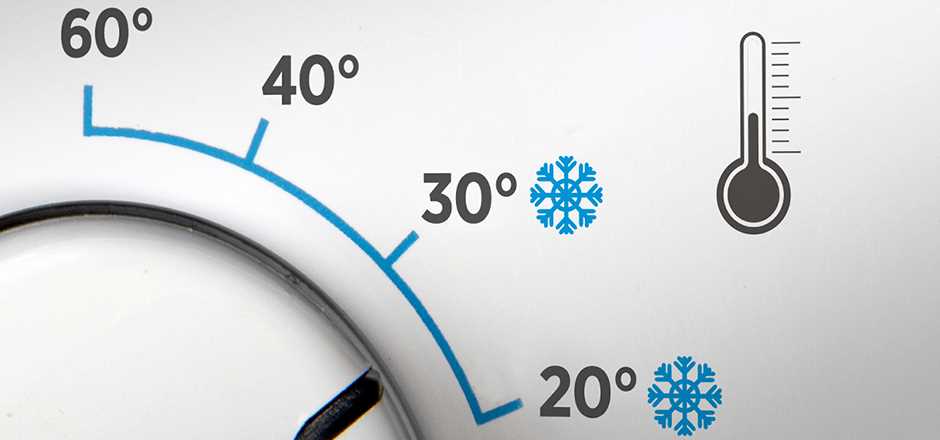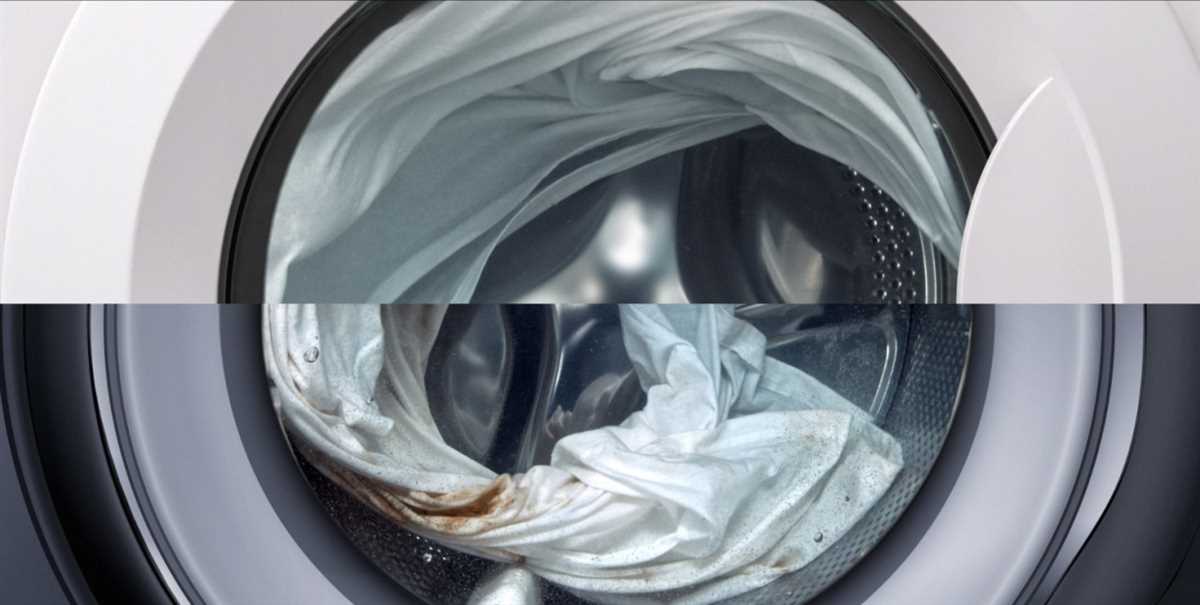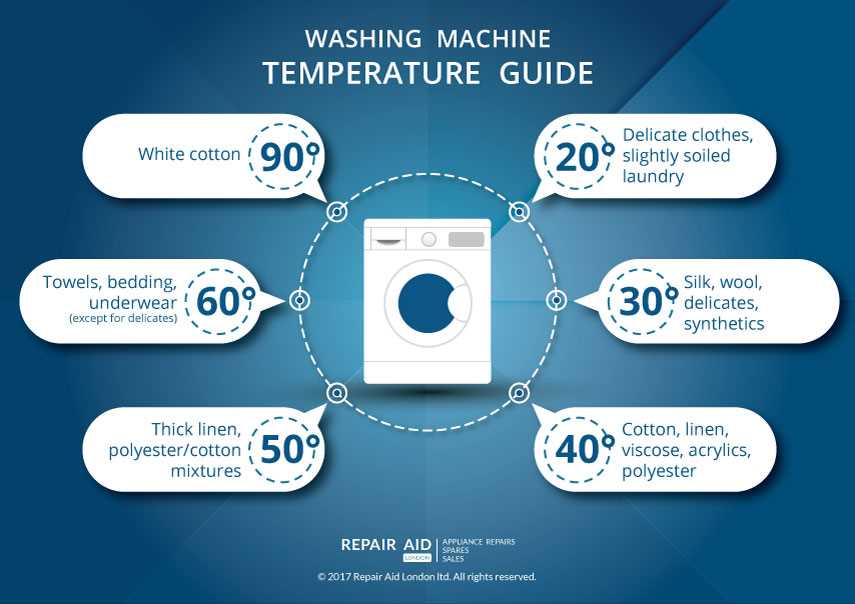




When it comes to doing laundry, there are many factors to consider, including the temperature at which you should wash your clothes. In the UK, a cold wash is typically considered to be around 30°C or below. However, it’s important to note that different fabrics and garments may require specific temperature settings.
Washing clothes in cold water has several benefits. First and foremost, it can help to preserve the colors and integrity of your garments, especially for items that are prone to fading or shrinking. Additionally, washing in cold water can be more energy-efficient, as heating water accounts for a significant portion of the energy used during a laundry cycle.
While a cold wash is generally suitable for most everyday fabrics, there are some exceptions. It’s recommended to use warm water (around 40°C) for items such as towels and bed linens, as the higher temperature can help to remove any bacteria or allergens more effectively. For heavily soiled or stained garments, a hot wash (around 60°C) may be necessary to ensure thorough cleaning.
Remember to always check the care label on your clothing for specific instructions regarding temperature and other washing guidelines. Some delicate items may require handwashing or dry cleaning to maintain their quality and longevity.
In conclusion, a cold wash in the UK is generally considered to be around 30°C or below. However, it’s important to consider the fabric and garment type, as well as any specific instructions indicated on the care label. By choosing the appropriate temperature for your laundry, you can ensure that your clothes are clean, well-maintained, and last longer.
Understanding the Optimal Temperature for Cold Washes in the UK
In the UK, when it comes to doing laundry, the term “cold wash” typically refers to a washing machine cycle where the water temperature is set to around 30 degrees Celsius or below. While some washing machine models may have a specific setting for a cold wash, many people simply use the lowest temperature setting available.
Benefits of Cold Washes
There are several benefits to using cold water for washing clothes in the UK:
- Energy Savings: Washing clothes in cold water saves energy because there is no need to heat the water. This can help reduce electricity bills and is more environmentally friendly.
- Prevents Color Fading: Cold water is less likely to cause color fading in clothes, especially for dark or vibrant colors. It helps to preserve the garment’s original color and keeps them looking vibrant for longer.
- Gentler on Fabrics: Hot water can sometimes shrink or damage certain fabrics. Washing clothes in cold water reduces the risk of shrinking or weakening the fibers, ensuring that your clothes last longer.
- Effective Cleaning: Contrary to popular belief, cold water can still effectively clean your clothes. Modern detergents are specially formulated to be effective at lower temperatures, so you don’t have to sacrifice clean clothes for energy savings.
When to Use Hot or Warm Water
While cold washes are suitable for the majority of laundry loads in the UK, there are times when hot or warm water may be necessary:
- Stained or heavily soiled clothes: Hot or warm water can help break down stains and remove dirt more effectively.
- Bedding and towels: Hot or warm water can help sanitize and remove potential allergens from these items.
- Whites: Hot water is often recommended for washing white clothes to help maintain their brightness.
Keep in mind that not all fabrics are suitable for hot or warm water, and some clothing items may have specific care instructions on their tags. Always check the garment’s care label for recommended washing temperatures.
Conclusion

In the UK, a cold wash typically refers to using a water temperature of around 30 degrees Celsius or below. Cold washes offer energy savings, prevent color fading, and are gentler on fabrics while still effectively cleaning clothes. However, there are situations where hot or warm water may be necessary for heavily soiled items or specific fabrics. Always check the care label of your garments for washing temperature recommendations.
Factors to Consider When Setting the Temperature for Cold Washes
When doing laundry, setting the temperature for a cold wash is a decision that should be made carefully. Here are some factors to consider when determining the appropriate temperature for a cold wash:
Type of Fabric
One of the most important factors to consider is the type of fabric being washed. Different fabrics require different care and can withstand different temperatures. For delicate fabrics such as silk or lace, a cold wash is recommended to prevent damage. On the other hand, sturdier fabrics like cotton can tolerate a slightly higher temperature, but still benefit from cold water washes.
Level of Soiling
The level of soiling on the clothes also plays a role in determining the temperature for a cold wash. For lightly soiled garments, a cold wash can be sufficient to remove dirt and stains. However, for heavily soiled items, a slightly warmer temperature may be necessary to effectively clean the clothes.
Eco-Friendliness
Choosing a cold wash can be a more eco-friendly option compared to using higher temperatures. Washing machines require energy to heat water, so by opting for a cold wash, you can reduce the overall energy consumption of your laundry routine.
Detergent Effectiveness
Some detergents are specifically formulated to work better in cold water. These detergents have enzymes and other ingredients that are designed to break down stains effectively without the need for heated water. Using these detergents can improve the cleaning power of a cold wash and ensure that your clothes come out fresh and clean.
Colour fastness
For clothes with vibrant or dark colours, using cold water can help prevent color fading. Hot water can cause dyes to bleed or fade, especially in darker fabrics. Choosing a cold wash can help to preserve the intensity and brightness of the colours in your clothes.
Savings on Energy Costs
Lastly, using cold water for your laundry can help you save on energy costs. Heating water for laundry can account for a considerable portion of your overall energy usage. By selecting a cold wash, you can reduce your energy consumption and lower your monthly utility bills.
In conclusion, when setting the temperature for a cold wash, consider the fabric type, soiling level, eco-friendliness, detergent effectiveness, color fastness, and potential energy savings. By taking these factors into account, you can ensure that your clothes are cleaned effectively while maintaining their quality and reducing your environmental impact.
The Benefits of Using Cold Water for Laundry in the UK
Cold water laundry refers to washing clothes using water at a temperature below 20°C. While many people opt for warmer water temperatures for laundry, using cold water offers several benefits, especially in the UK.
1. Energy Efficiency
One of the primary benefits of using cold water for laundry in the UK is increased energy efficiency. Heating water for laundry accounts for a significant portion of household energy consumption. By using cold water, you can save on energy costs and reduce your carbon footprint.
2. Preservation of Fabric

Cold water is gentler on fabrics compared to hot water or high-temperature wash cycles. It helps prevent shrinkage and fading, making it particularly suitable for delicate items and clothing made from sensitive materials like silk or wool. By using cold water, you can extend the lifespan of your clothes and keep them looking new for longer.
3. Stain Removal
Contrary to popular belief, cold water can effectively remove stains from clothing. Cold water, when used in conjunction with a good quality detergent and proper stain treatment techniques, can remove a wide range of stains. Additionally, hot water can actually set certain stains, making them more difficult to remove.
4. Environmental Benefits
Using cold water for laundry not only reduces energy consumption but also conserves water resources. In the UK, where water scarcity is a concern in some areas, using less hot water for laundry can help alleviate the pressure on the water supply.
5. Versatility for Mixed Loads
Using cold water allows you to wash different types of fabrics together without worrying about color bleeding or fabric damage. This versatility makes it easier and more efficient to do laundry, as you can combine various types of garments in one load without compromising their quality.
6. Convenience
Another benefit of using cold water for laundry in the UK is convenience. Unlike warm or hot water, you don’t have to wait for the water to heat up before starting the wash cycle. This saves time and allows for more efficient use of your washing machine.
7. Cost Savings

Using cold water for laundry can also lead to cost savings. Not only do you save on energy costs, but you may also save on detergent costs, as cold water requires less detergent compared to hot water.
Conclusion
Overall, using cold water for laundry in the UK offers numerous benefits, including energy efficiency, fabric preservation, stain removal, environmental advantages, versatility, convenience, and cost savings. Consider making the switch to cold water laundry to enjoy these benefits and contribute to a more sustainable lifestyle.
Common Misconceptions About Cold Washes in the UK
There are several common misconceptions about cold washes in the UK. These misconceptions often lead to confusion about the appropriate temperature for different types of laundry. Let’s address and clarify some of these misconceptions:
-
Cold wash means using freezing water:
This is a common misconception as a cold wash in the UK does not mean using water at freezing temperatures. Cold wash usually refers to using water at temperatures below 20°C (68°F). It is not necessary to use freezing water as cold washes can effectively clean most types of clothing.
-
Cold wash is not effective in cleaning:
Many people believe that using cold water for washing is not as effective in removing stains and dirt compared to using warm or hot water. However, advancements in laundry detergents and washing machines have made cold washes just as effective as warm washes. Cold washes can efficiently remove dirt and stains without causing damage to clothes.
-
Cold wash is only suitable for certain fabrics:
Another misconception is that cold wash is only suitable for certain fabrics like delicate or colored clothing. While it is true that cold wash is gentle on delicate fabrics and helps prevent color fading, it can be used for a wide range of fabric types, including cotton, synthetic blends, and even heavily soiled clothes. The cold water temperature helps prevent shrinkage and damage while providing effective cleaning.
-
Cold washes increase energy efficiency:
Some people believe that cold washes are not as energy-efficient as warm or hot washes. However, cold washes are actually more energy-efficient as they require less energy to heat the water. Using cold water for laundry can significantly reduce energy consumption and lower electricity bills.
-
Cold washes are suitable for all laundry:
While cold washes are generally suitable for most laundry, there are some exceptions. Certain items, such as heavily soiled clothes, bedding, and towels, may require warm water to effectively remove stains and odors. It is important to carefully read care labels and consider the specific needs of each item before deciding on the appropriate wash temperature.
Overall, cold washes in the UK are a convenient and effective option for laundry. They provide efficient cleaning, prevent color fading, reduce energy consumption, and are suitable for a wide range of fabrics. By debunking these common misconceptions, it is clear that cold washes can be a reliable choice for many households in the UK.
Tips for Ensuring Effective Cleaning with Cold Water in the UK

1. Use a Suitable Detergent

When washing clothes with cold water, it is important to use a detergent that is specifically formulated for cold water washing. These detergents are designed to activate and dissolve better in lower temperatures, ensuring that your clothes are effectively cleaned.
2. Pre-Treat Stains

If you have any stained garments, it is recommended to pre-treat them before washing. Apply a stain remover or a small amount of detergent directly onto the stain, gently rub it in, and let it sit for a few minutes before washing. This will help to lift the stain and increase the chances of it being removed during the cold wash.
3. Sort Your Laundry

Properly sorting your laundry is crucial when washing with cold water. Sort your garments by color and fabric type to prevent color bleeding or damage to delicate fabrics. Following the care instructions on clothing labels is also important to ensure that each item is washed at the appropriate temperature.
4. Use a Longer Wash Cycle
When using cold water, it is advisable to select a longer wash cycle on your washing machine. This allows the detergent more time to dissolve and effectively clean your clothes. The longer cycle will also help to agitate the garments more, aiding in the removal of dirt and stains.
5. Consider Using a Laundry Booster

If you are encountering stubborn stains or odours, using a laundry booster can help enhance the cleaning power of your cold wash. These boosters are specially formulated to work alongside your detergent, providing extra stain-fighting capabilities.
6. Avoid Overloading the Machine
When washing with cold water, it is important not to overload the washing machine. Overcrowding the machine can prevent clothes from properly circulating and being cleaned. Follow the manufacturer’s guidelines for load capacity to ensure effective cleaning.
7. Hang Clothes to Dry
After washing with cold water, it is best to hang your clothes to dry instead of using a dryer. Hanging clothes to dry helps prevent shrinkage and unnecessary wear that can occur in the dryer. It is also more environmentally friendly.
8. Regularly Clean Your Washing Machine
To maintain the effectiveness of your cold washes, it is advisable to regularly clean your washing machine. Follow the manufacturer’s instructions for cleaning and descaling your machine to remove any buildup of detergent residues or mineral deposits that can impact its performance.
9. Follow Good Laundry Practices
In addition to washing with cold water, following good laundry practices can further enhance the effectiveness of your cleaning. These practices include not overcrowding the machine, removing clothes promptly after the wash cycle, and properly storing clean clothes to avoid wrinkles or odours.
10. Experiment with Temperature Settings

While cold water is typically considered to be around 20°C in the UK, you may find that adjusting the temperature slightly can still provide effective cleaning results. Experiment with different temperature settings to find the ideal balance between effective cleaning and energy efficiency.
By following these tips, you can ensure that your clothes are effectively cleaned even when using cold water in the UK. Remember to always check the care instructions on your garments and adapt your washing routine accordingly.
FAQ
What temperature is considered a cold wash in the UK?
In the UK, a cold wash typically refers to washing clothes at a temperature of 20°C or below.
Is it better to wash clothes in cold water in the UK?
Washing clothes in cold water in the UK can be better for several reasons. It helps to save energy, minimize fading of colors, prevent shrinkage, and reduce the risk of damage to delicate fabrics.
What are the advantages of using cold water for laundry in the UK?
Using cold water for laundry in the UK has several advantages. It can save energy and money, protect the environment, preserve the color and quality of clothes, and reduce the likelihood of shrinkage or damage to fabrics.
Can I wash all types of clothes in cold water in the UK?
In general, most types of clothes can be washed in cold water in the UK. However, for heavily soiled items or those that require sanitization, it may be necessary to use warm or hot water to ensure proper cleaning.













